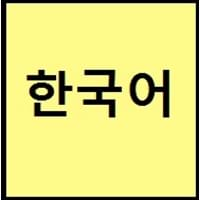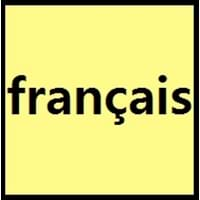Countries
China, Jilin Province, North Korea, South Korea, Yanbian
Belgium, Benin, Burkina Faso, Burundi, Cameroon, Canada, Central African Republic, Chad, Comoros, Congo, Cote d'Ivoire, Djibouti, Equatorial Guinea, France, Gabon, Guernesey, Guinea, Haiti, Italy, Jersey, Luxembourg, Madagascar, Mali, Mauritius, Monaco, Niger, Rwanda, Senegal, Seychelles, Switzerland, Togo, Vanuatu
National Language
North Korea, South Korea
France
Second Language
Not spoken in any of the countries
Africa, Canada
Speaking Continents
Asia
Africa, Australia, Europe, North America, Oceania, Pacific, South America
Minority Language
Japan, People's Republic of China, Russia, United States of America
Brazil, Cambodia, United States of America, Vietnam
Regulated By
The National Institute of the Korean Language
Académie française (French Academy), Office québécois de la langue française
Interesting Facts
- Korean has borrowed words from English and Chinese.
- Korean has two counting systems. First, is based on Chinese characters and numbers are similar to Chinese numbers, and second counting system is from words unique to Korea.
- French is the only language, with English, that is taught in every country of the world.
- French is the top language in Culinary Scene.
Similar To
Chinese and Japanese languages
Italian Language
Derived From
Not Available
Latin
Alphabets in
Korean-Alphabets.jpg#200
French-Alphabets.jpg#200
Writing Direction
Left-To-Right, Horizontal, Top-To-Bottom
Left-To-Right, Horizontal
Hello
안녕하세요. (annyeonghaseyo.)
bonjour
Thank You
감사합니다 (gamsahabnida)
Merci
How Are You?
어떻게 지내세요? (eotteohge jinaeseyo?)
Comment allez-vous?
Good Night
안녕히 주무세요 (annyeonghi jumuseyo)
bonne Nuit
Good Evening
안녕하세요 (annyeonghaseyo.)
bonsoir
Good Afternoon
안녕하십니까 (annyeong hashimnikka)
bon Après-Midi
Good Morning
안녕히 주무셨어요 (An-yŏng-hi ju-mu-shŏ-ssŏ-yo)
Bonjour
Please
하십시오 (hasibsio)
S'il vous plaît
Sorry
죄송합니다 (joesonghabnida)
désolé
Bye
안녕 (annyeong)
au revoir
I Love You
당신을 사랑합니다 (dangsin-eul salanghabnida)
Je t'aime
Excuse Me
실례합니다 (sillyehabnida)
Excuse Moi
Dialect 1
Jeju
Quebec French
Where They Speak
South Korea
New Brunswick, New England, Ontario, Quebec, Western Canada
Dialect 2
Gyeongsang
African French
Where They Speak
South Korea
Africa
How Many People Speak
Not Available
Dialect 3
Hamgyŏng
Swiss French
Where They Speak
China, North Korea
Northeast France, Switzerland
How Many People Speak
Not Available
Second Language Speakers
Not Available
Native Name
한국어 (조선말)
français
Alternative Names
Hanguk Mal, Hanguk Uh
Français
French Name
coréen
français
German Name
Koreanisch
Französisch
Pronunciation
Not Available
[fʁɑ̃sɛ]
Ethnicity
Koreans
Not Available
Origin
Before 1st century
9th Century
Language Family
Koreanic Family
Indo-European Family
Subgroup
Not Available
Romance
Branch
Not Available
Not Available
Early Forms
Old Korean, Middle Korean and Korean
Old French, Middle French and French
Standard Forms
Pluricentric Standard Korean, South Korean standard and North Korean standard
Standard French
Signed Forms
Korean Sign Language
le Français Signé (Signed French, France)
Scope
Individual
Individual
ISO 639 6
Not Available
fras
Glottocode
kore1280
stan1290
Linguasphere
45-AAA
51-AAA-i
Language Type
Living
Living
Language Linguistic Typology
Subject-Object-Verb
Subject-Verb-Object
Language Morphological Typology
Agglutinative
Fusional, Synthetic
Korean and French Greetings
People around the world use different languages to interact with each other. Even if we cannot communicate fluently in any language, it will always be beneficial to know about some of the common greetings or phrases from that language. This is where Korean and French greetings helps you to understand basic phrases in Korean and French language. Korean word for "Hello" is 안녕하세요. (annyeonghaseyo.) or French word for "Thank You" is Merci. Find more of such common Korean Greetings and French Greetings. These greetings will help you to be more confident when conversing with natives that speak these languages.
Korean vs French Difficulty
The Korean vs French difficulty level basically depends on the number of Korean Alphabets and French Alphabets. Also the number of vowels and consonants in the language plays an important role in deciding the difficulty level of that language. The important points to be considered when we compare Korean and French are the origin, speaking countries, language family, different greetings, speaking population of these languages. Want to know in Korean and French, which language is harder to learn? Time required to learn Korean is 88 weeks while to learn French time required is 24 weeks.





